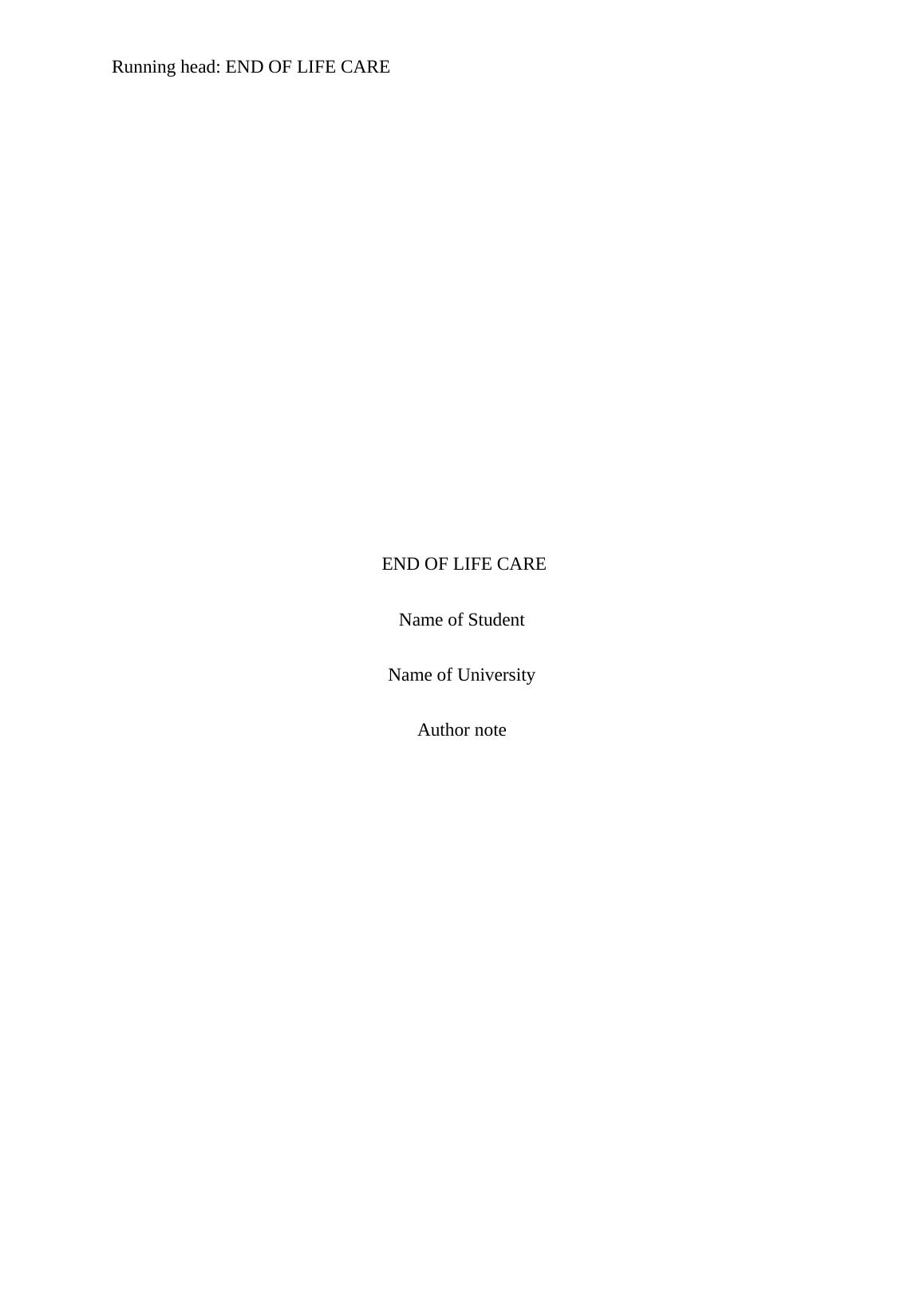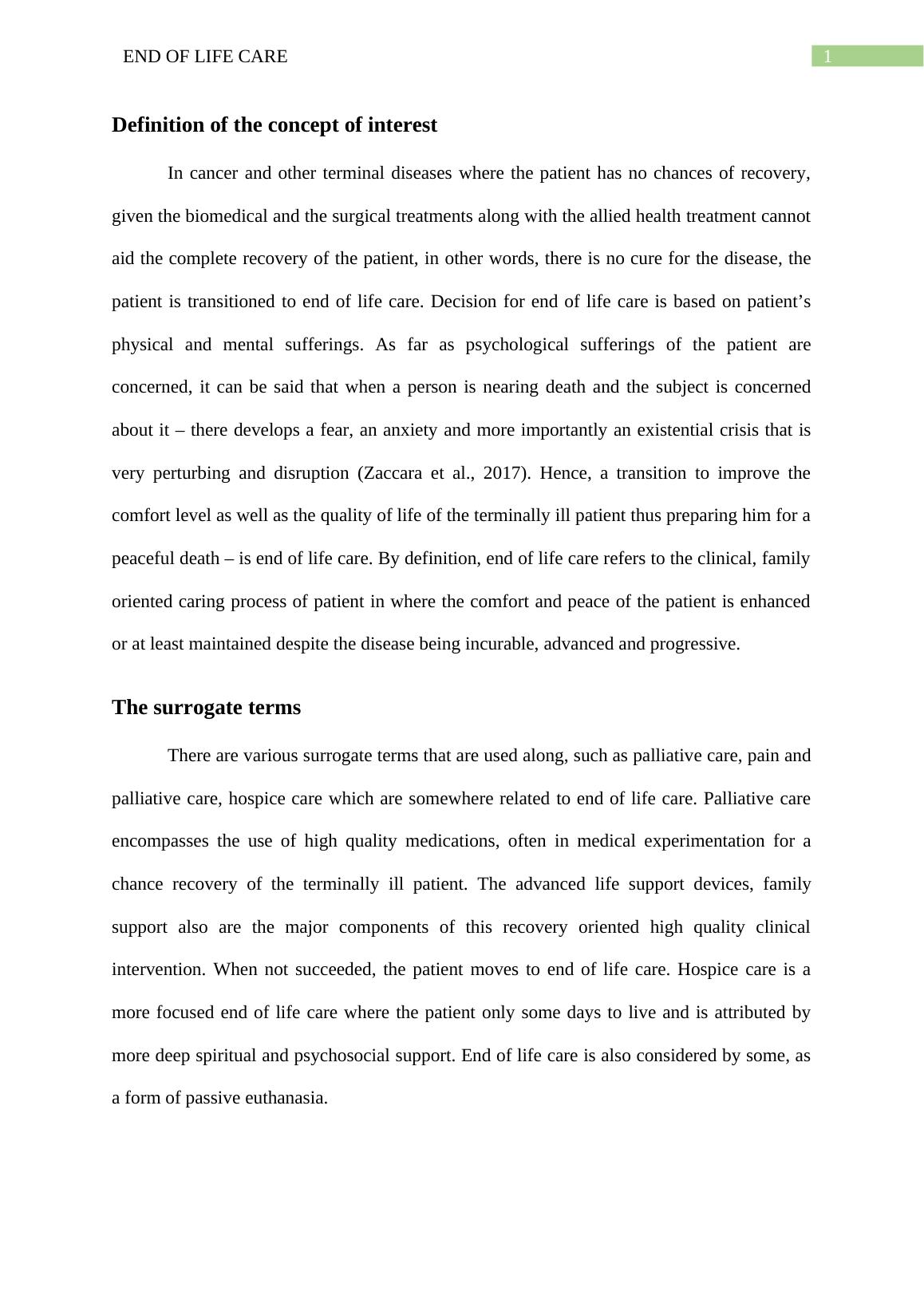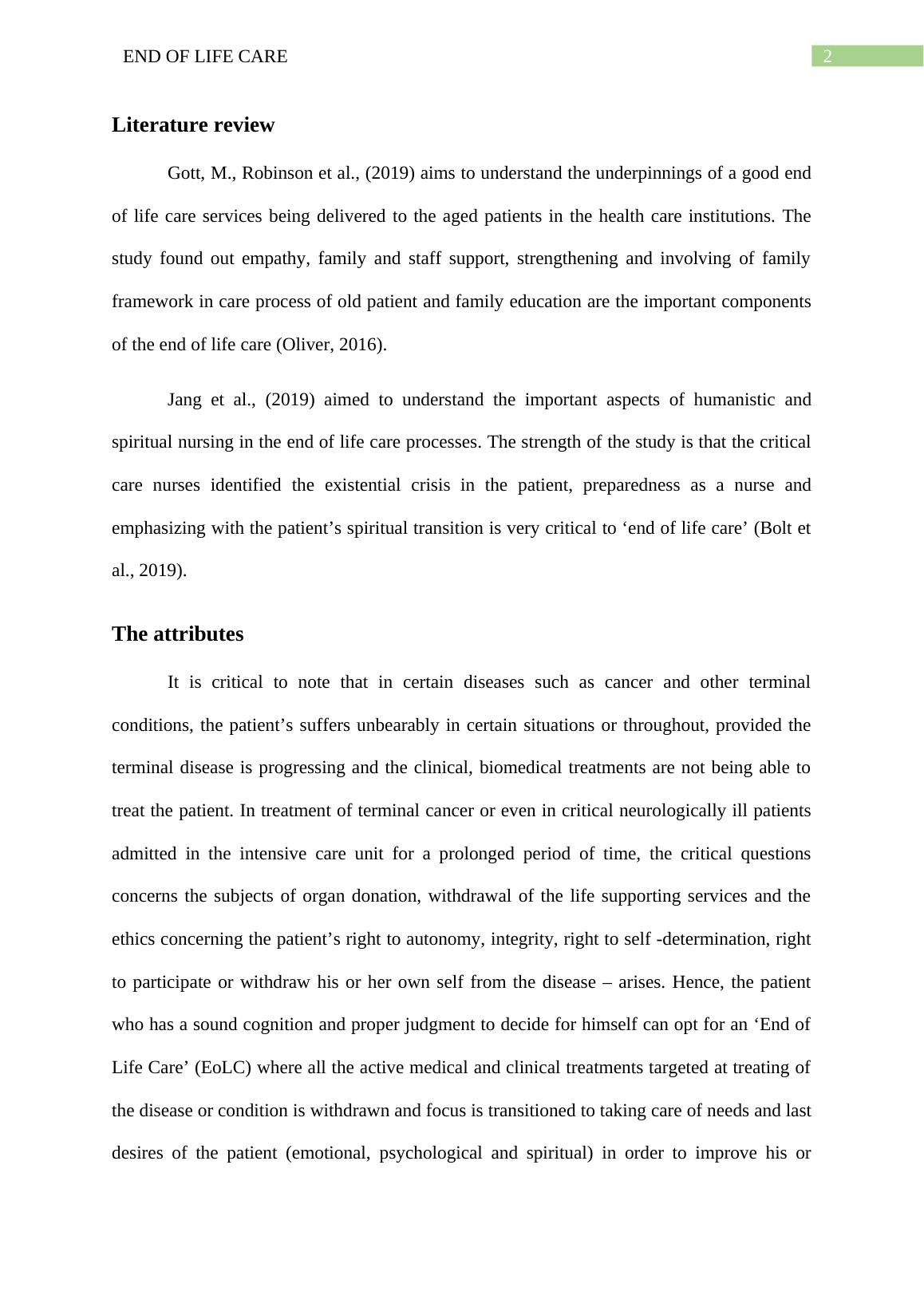THE END OF LIFE CARE
This is a draft of an assessment rubric for a concept analysis paper in the Master of Science in Emergency Nursing program. The rubric includes criteria for defining the concept of interest, identifying surrogate terms and relevant uses, reviewing literature, and discussing the attributes of the concept.
7 Pages1734 Words38 Views
Added on 2022-08-25
THE END OF LIFE CARE
This is a draft of an assessment rubric for a concept analysis paper in the Master of Science in Emergency Nursing program. The rubric includes criteria for defining the concept of interest, identifying surrogate terms and relevant uses, reviewing literature, and discussing the attributes of the concept.
Added on 2022-08-25
ShareRelated Documents
End of preview
Want to access all the pages? Upload your documents or become a member.
Nursing Public Health - Palliative and Hospice Care, Community Health Nurse Role, Ethical Viewpoint and Resource Use
|5
|796
|61
Concept Analysis Template | Nursing
|7
|1632
|11
Palliative and Curative Care Assignment
|11
|2869
|27
Continuous Quality Improvement and Patient Satisfaction
|11
|3129
|205
Palliative Care for Hospice Patients: Nursing Interventions and Strategies
|8
|1118
|378
Chronic Pain Management and Palliative End of life Care Case Case Study 2022
|14
|3744
|17



